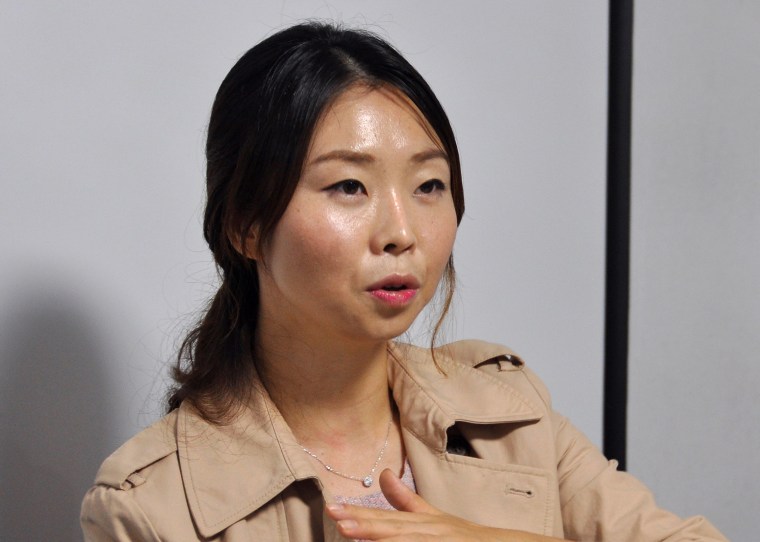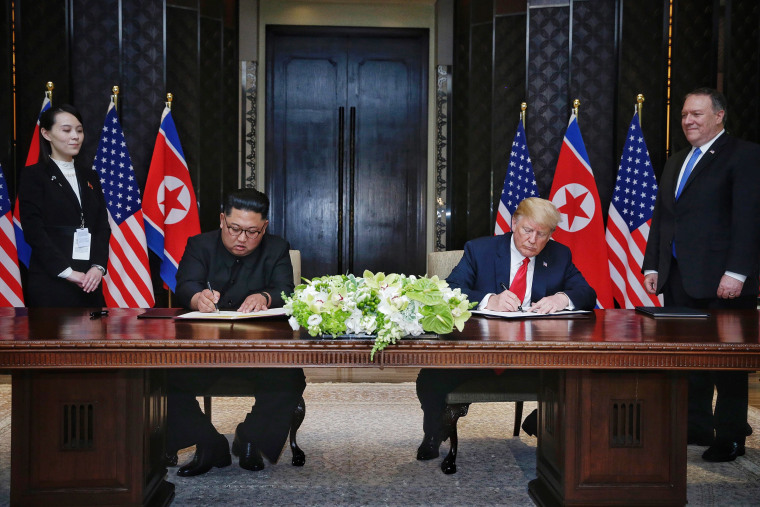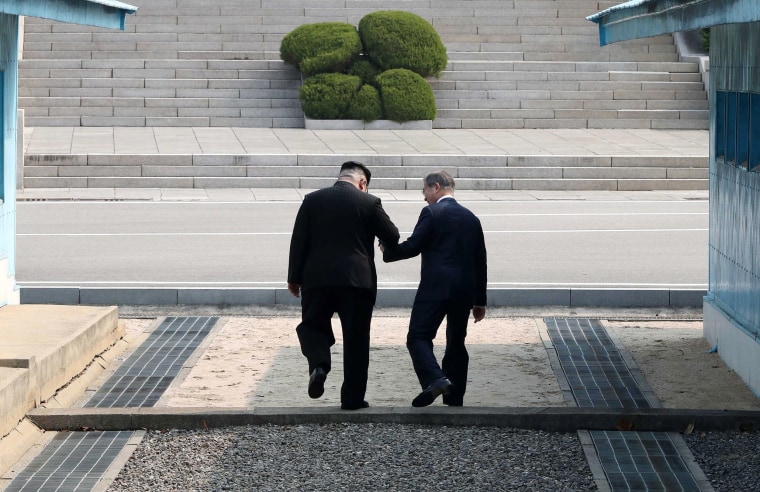SEOUL, South Korea — President Donald Trump says he has a warm relationship with Kim Jong Un, once declaring he “fell in love” with the young North Korean dictator.
Kim Eunsun, a North Korean defector, has reason to be more cautious about her homeland. And this feeling is reflected widely across her adopted country.
Kim was just 9 when her class was taken to watch men being executed by firing squad for supposed “wrongdoings.”

Later, she watched as her father starved to death, becoming one of the more than 1 million North Koreans estimated to have died in a famine that swept the country in the 1990s.
The family’s desperate search for food motivated Kim and her mother to escape North Korea, initially to China in 1998 before they settled in South Korea nearly nine years later.
Now 32, living in Seoul and raising a family of her own, Kim is watching warily as Kim Jong Un and other world leaders pursue a possible deal to help resolve the long-running dispute over the isolated regime’s nuclear weapons.
“I actually do not have any big expectations about the North Korean regime,” she told NBC News.
But she allows herself to feel faint optimism that, this time, the North Korean government is serious about making concessions.
“I hope the changes become real," she said. "I hope this time they can do what they promised to the world."
Many South Koreans are also wary. While a recent poll commissioned by South Korea’s JoongAng Daily newspaper showed that seven out of 10 respondents were satisfied with President Moon Jae-in’s recent three-day trip to Pyongyang, more than half did not trust Kim on denuclearization.
Trump signaled that he wants to meet with Kim again soon, building on their June summit in Singapore at which the North Korean leader promised to “work toward” complete denuclearization of the Korean Peninsula.
However, progress on this front has been slow, and U.S. officials recently said the next Trump-Kim summit may not happen before 2019. On Friday Pyongyang warned it could resume nuclear development if the U.S. does not lift economic sanctions.
In the meantime, North and South have worked to reduce military tensions. In recent weeks, the neighboring nations — together with the United Nations Command — have withdrawn firearms and military posts from Panmunjom, the border town where troops from both sides stare at each other along the demarcation line.
Shin Beomchul, a senior research fellow at the Asan Institute for Policy Studies and a former director-general for policy planning at South Korea’s foreign affairs ministry, warned that Moon has taken “a big risk” in so aggressively pursuing inter-Korean cooperation even without meaningful concessions from the North on its nuclear weapons.
“I think Moon Jae-in’s gamble is: trust in North Korea first, and verify later,” he said. “Trust-building is important, but the most important trust-building on the Korean Peninsula is denuclearization.”
Shin said North Korea would gain trust if it allowed credible inspections and provided a full description of its nuclear weapons, the amount of enriched uranium in its possession and all of its related facilities.
He said: “I think we must watch North Korea’s real action on denuclearization and expand our cooperation with the North step by step. I think that trust-building is too fast, compared to the denuclearization effort of North Korea.”
That is not a view shared by South Korea's foreign minister, Kang Kyung-wha, who argued recently that demands for a full nuclear inventory could complicate negotiations at this stage. She said the U.S. should first consider trust-building steps such as a declaration ending the Korean War, which paused with an armistice in 1953.
U.S. officials fear an end-of-war declaration could ultimately pave the way for North Korea to demand the withdrawal of American troops from South Korea.
Shin warned that if the denuclearization talks broke down, it could cause “friction” in the relationship between South Korea and the U.S., partly because of the key role Seoul has played in communicating Pyongyang’s agenda.
Jenny Town, a research analyst at the Stimson Center in Washington and managing editor of the influential 38 North website, said she believed Moon had oversold the significance of Kim’s commitments to date.
Town told a conference in Seoul that if Trump felt fooled or frustrated, the response “could get ugly very fast.”
However, experts close to Moon say he has managed the risks.
Handong Global University professor Kim Joon-hyung, who is a member of a presidential planning committee on security and foreign policy, said Moon was “very cautious” about his role as a mediator between the U.S. and the North on the nuclear issue. If South Korea pushed too hard, the U.S. would feel pressured, he said.

At the same time, Moon is acting as an “accelerator of the Korean peace process” and trying to “break 70 years of distrust” on the peninsula. “We should be critical, not cynical — I think this time is different,” the professor said.
Kim, the North Korean defector, said she believes there has been a change in the mood.
She said Kim Jong Un had previously seemed “like a stranger” to many South Koreans, but the recent summits had allowed the world to hear his voice and see him move, making him seem more like a human being.
“But it doesn’t mean what Kim Jong Un does is good,” she said at the Seoul office of Teach North Korean Refugees, a nonprofit that helped her improve her English skills enough that she has become a confident public speaker.
While she hopes for closer integration between the two Koreas, she really wants an end to human rights abuses in the North. Having already written a book about her experiences, she plans to begin a master’s degree in sociology.
“My story is not finished,” she said. “I hope change comes true. However, I don’t trust the Kim regime.”

